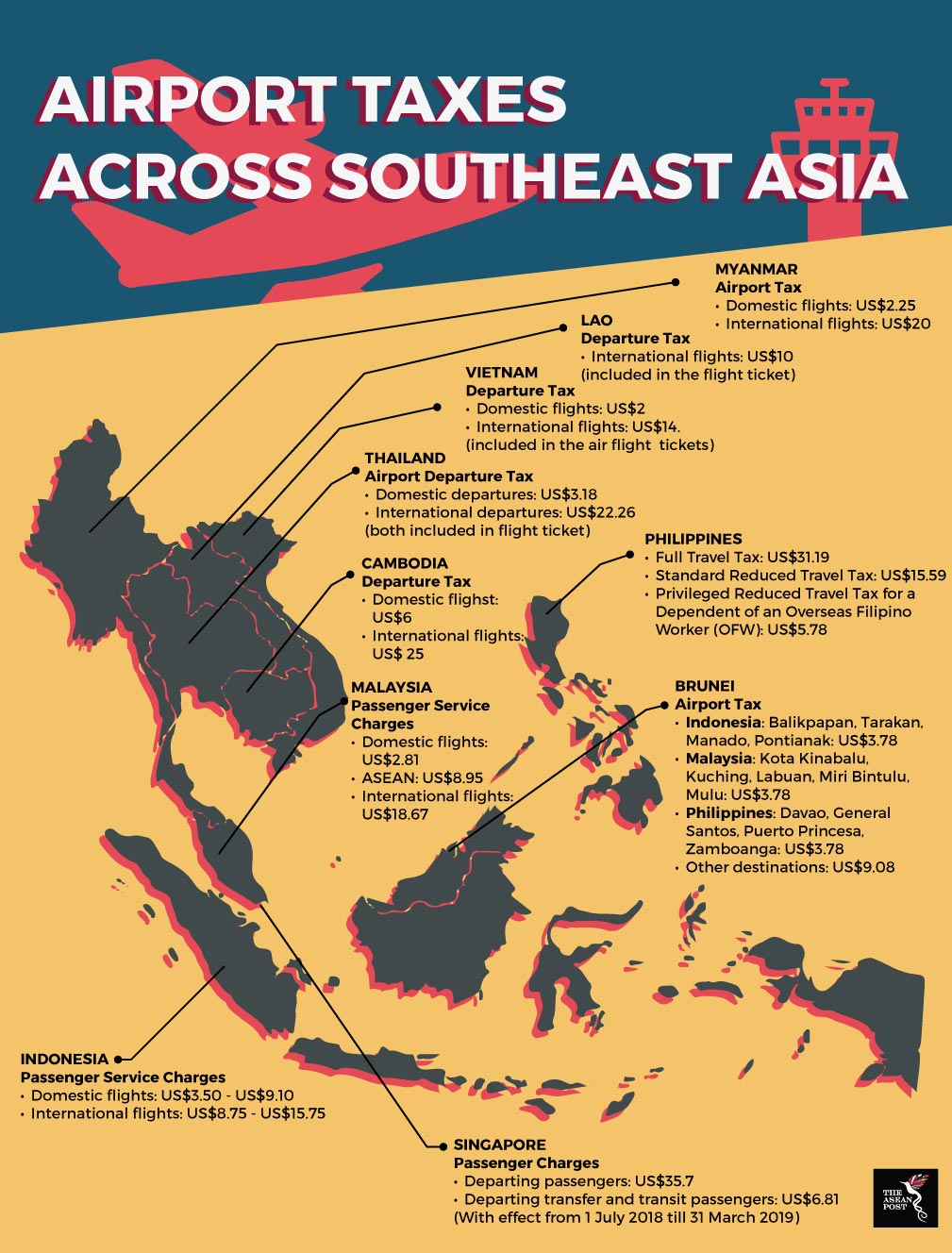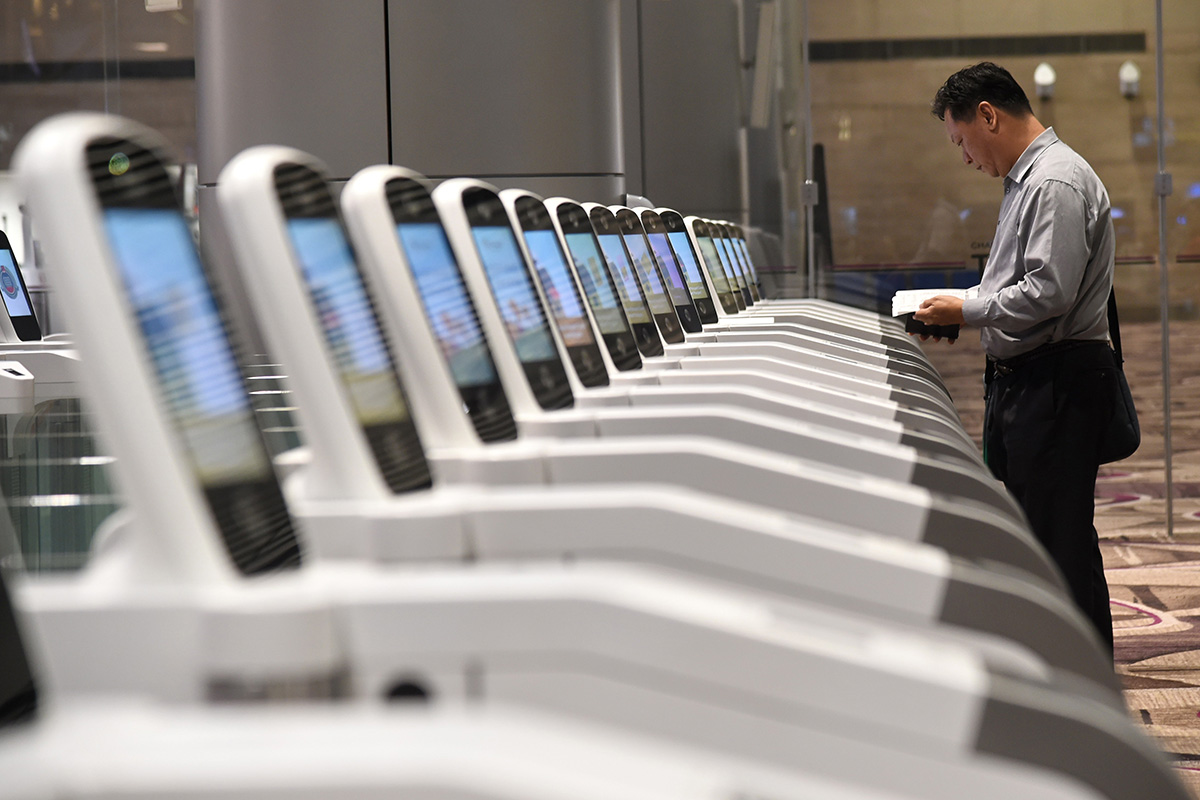Singapore’s government is imposing new airport taxes starting from July 2018. The hike in taxes is drawing the ire of passengers who now have to pay in advance for the future development of Changi airport.
According to a report by Changi Airport Group (CAG), the Passenger Service Charge (PSC) and Passenger Security Service Charge (PSSC) will be combined into the Passenger Service and Security Fee (PSSF) starting from 1 July, 2018. The PSSF will be paid by all departing passengers (including transfer and transit passengers), at Changi Airport. In addition, all departing passengers (including transfer and transit passengers) at Changi Airport will also be required to pay a new tax known as the Airport Development Levy (ADL) which is to be used to fund future airport expansion and the new Terminal 5 (T5).
The current tax (including PSC, PSSC and Aviation Levy) of US$25.74 imposed by CAG will be raised to US$35.81 that includes PSSF, Aviation Levy and ADL (only applies to departing passengers at Changi Airport).
Why pay in advance?
The main reason for new taxes being levied and existing ones being raised is due to the new airport development which includes the upgrading of infrastructure and planning for future airport expansions.
The plans for the airport expansion are mainly to accommodate the forecasted increase in passenger traffic. According to Singapore Business Review, Changi Airport handled 62.2 million passengers in 2017, a six percent jump from 2016.
“The Kuala Lumpur International Airport (KLIA) in Sepang handled 5.59 million passengers in December 2017, a growth of 4.5% from 5.35 million passengers recorded in December 2016,” stated Malaysia Airports Holdings Bhd (MAHB) in January 2018 during a filing with Bursa Malaysia.
Changi Airport and KLIA have both recorded positive growth in passenger traffic for 2017 and it is projected to grow continually in the coming years. Thus, plans for airport expansion is crucial in order to accommodate the increase in passenger traffic.
The Changi East mega-project is expected to cost tens of billions of dollars according to The Straits Times in March 2018. CAG did mention that while the government will be funding the whole mega-project, tax from airport users will also be required.
Across the causeway in Malaysia, the Malaysian Aviation Commission (MAVCOM) has equalised the Passenger Service Charges (PSC) to be implemented across Kuala Lumpur International Airport (KLIA), Kuala Lumpur International Airport 2 (klia2) and all other airports in Malaysia from 1 January 2018. The PSC is now standardised for KLIA, klia2 and other airports at US$2.81 for domestic flights, US$8.97 for flights in the ASEAN region and US$18.67 for international flights.
PSC which was also known as Airport Tax had previously been revised in October 2016 from US$2.31 to US$2.81 (domestic flights for KLIA and other airports), US$1.54 to US$2.81 (domestic flights for klia2), US$16.66 to US$18.67 (international flights for KLIA and other airports) and US$8.20 to US$12.81 (international flights for klia2).
“The Commission had undertaken a robust process to arrive at this position, which we believe to be more equitable. Aside from ensuring airport charges in Malaysia remaining amongst the lowest in the region, we expect this move to also allow the Government to reallocate subsidies to more needful purposes. The equalisation now progresses us in international aviation and we look forward to further strengthening Malaysia’s aviation sector,” said Abdullah Ahmad, Executive Chairman of MAVCOM.
Not something new
The idea of “pre-funding” new infrastructure projects has created a backlash among passengers. The International Air Transport Association (IATA) even reiterated its opposition to Singapore's decision to impose ADL and PSSF.
"It is unfair to expect passengers and airlines to pay in advance for a facility they may or may not use in the future when the facility is ready," said Conrad Clifford, IATA’s regional vice president, Asia Pacific in a report by TODAY two weeks ago.
Nevertheless, the idea of paying in advance is not new. According to Hong Kong International Airport (HKIA), the Airport Construction Fee (ACF) was introduced and collected on air tickets after 1 August 2016 for funding the three-runway system (3RS) which is due to be completed in 2024. The collection of ACF is between US$8.94 and US$22.98 per traveller.
“The ACF collection will be in effect until all borrowings related to the 3RS project are fully repaid,” explained the HKIA.
When reported on in 2015 when the ACF was first introduced, Fred Lam Tin-fuk, Chief Executive of HKIA told the South China Morning Post that the introduction of ACF was nothing new, and it would not deter people from travelling.
Airport tax increases are not only happening in Southeast Asia. The Dubai International Airport has also announced its first airport fee of US$9.50 to fund further airport expansion and is a sign of the effects of dwindling oil revenue in 2016 as reported by AFP.

Source: Various sources
Strong growth in ASEAN
According to the Inclusive Growth and Development Report 2017, World Economic Forum, five members of ASEAN made it to the top 10 list of most inclusive emerging and developing Asian economies. The list includes Thailand (1st), Malaysia (3rd), Indonesia (4th), Vietnam (5th) and the Philippines (10th).
“The 10 ASEAN members boast of some of the world’s fastest expanding economies like the Philippines and Vietnam, with growth rates of more than 6 percent,” stated Bloomberg in August 2017.
That is why airlines operating in ASEAN are figuring out ways to handle the huge acceleration in passenger traffic in the region by expanding their capacity with new infrastructure. This has unfortunately resulted in the need to increase existing airport taxes or to introduce new ones to fund the development.
